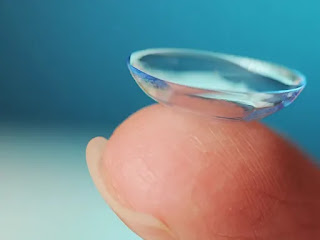Ultraviolet (UV) Safety Awareness Month
Ultraviolet (UV) Safety Awareness Month
Summer is in full swing and I would bet most of you are soaking up (or in!) the warmer weather. Most of us will apply sunscreen to protect our skin before heading outside, but are you grabbing protection for your eyes too?
Increased exposure to sunlight can increase your risk of eye damage from ultraviolet radiation. In the short-term, one might experience bloodshot eyes, a gritty sensation, extra light sensitivity and blurry vision. Accumulated UV exposure over time can lead to cancer of the eye or eyelid, growths on the surface of the eye, accelerated development of cataracts, and irreversible vision loss in the form of age-related macular degeneration.
Protect your eyes from sun damage with these reminders:
1. Wear proper sunglasses
- Always check the UV rating on your sunnies. Select one that provides at least 99% UV protection or blocks both UV-A and UV-B rays.
- Don’t be deceived by cost or darkness of the lens. Sunglasses don’t have to be expensive to be effective, and a darker lens does not mean it blocks more UV light. In fact, a dark lens without any UV protection is worse than going without sunglasses because it causes the pupil to dilate, allowing more UV radiation to reach the retina.
- A wrap-around or oversized style offers more protection from the top and sides. More importantly, choose what feels comfortable on your face so you are more likely to wear them.
- Polarized lenses block reflected glare off surfaces, which can be useful for sports or outdoor activities, but have nothing to do with UV light absorption. Many polarized lenses, however, are now combined with UV-blocking properties.
- Photochromatic lenses that automatically darken may be a good option for some.
2. Wear a broad-brimmed hat to keep sunglight off the face and eyes.
3. Don’t be fooled by cloudy or snowy days. UV radiation is still present when you can’t see the sunlight and is strongest when reflected off snow, water, or ice.
4. Never look directly at the sun. This can damage the retina from solar radiation.
Wear your sun protection regularly and don’t forget about the kids! Children take in approximately 3x the annual UV exposure of an adult, and up to 80% of their lifetime exposure happens before the age of 20. Unlike adult eyes, children’s eyes are still developing and cannot filter out UV rays as effectively so they are particularly vulnerable to UV damage. Start early so they learn to enjoy wearing them on their face.
Have a safe summer!
Dr. Rachel

Great reminder about the importance of UV protection for eye health! An optometrist can help assess UV-related eye damage and recommend the best protective eyewear. Regular eye exams ensure early detection of issues like cataracts or macular degeneration.
ReplyDelete